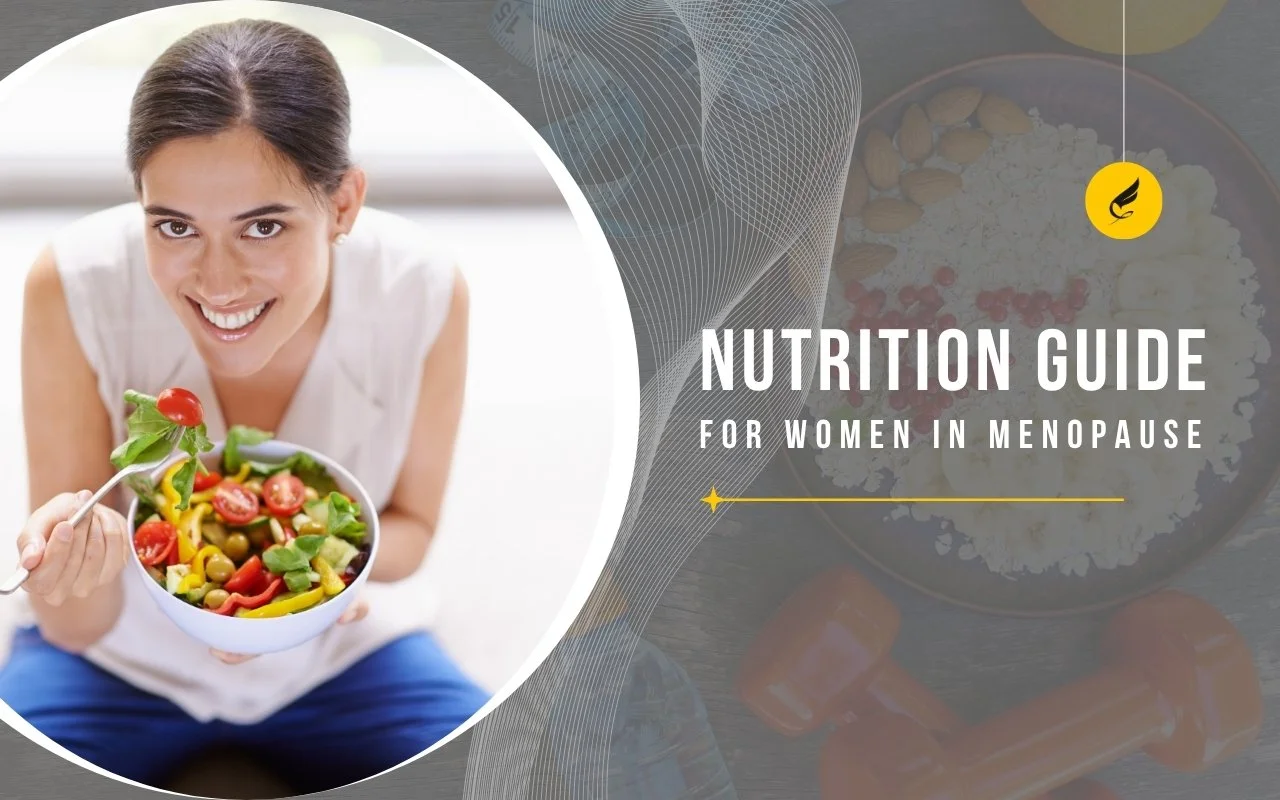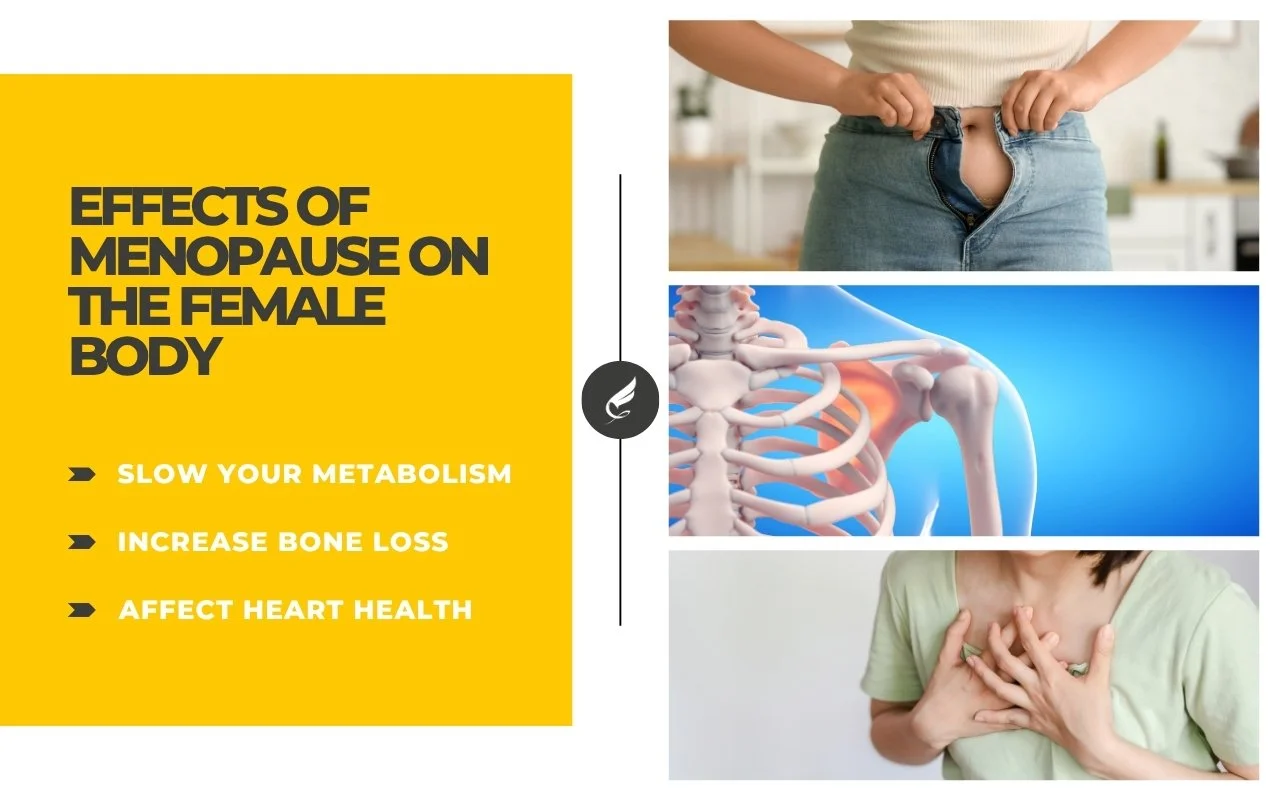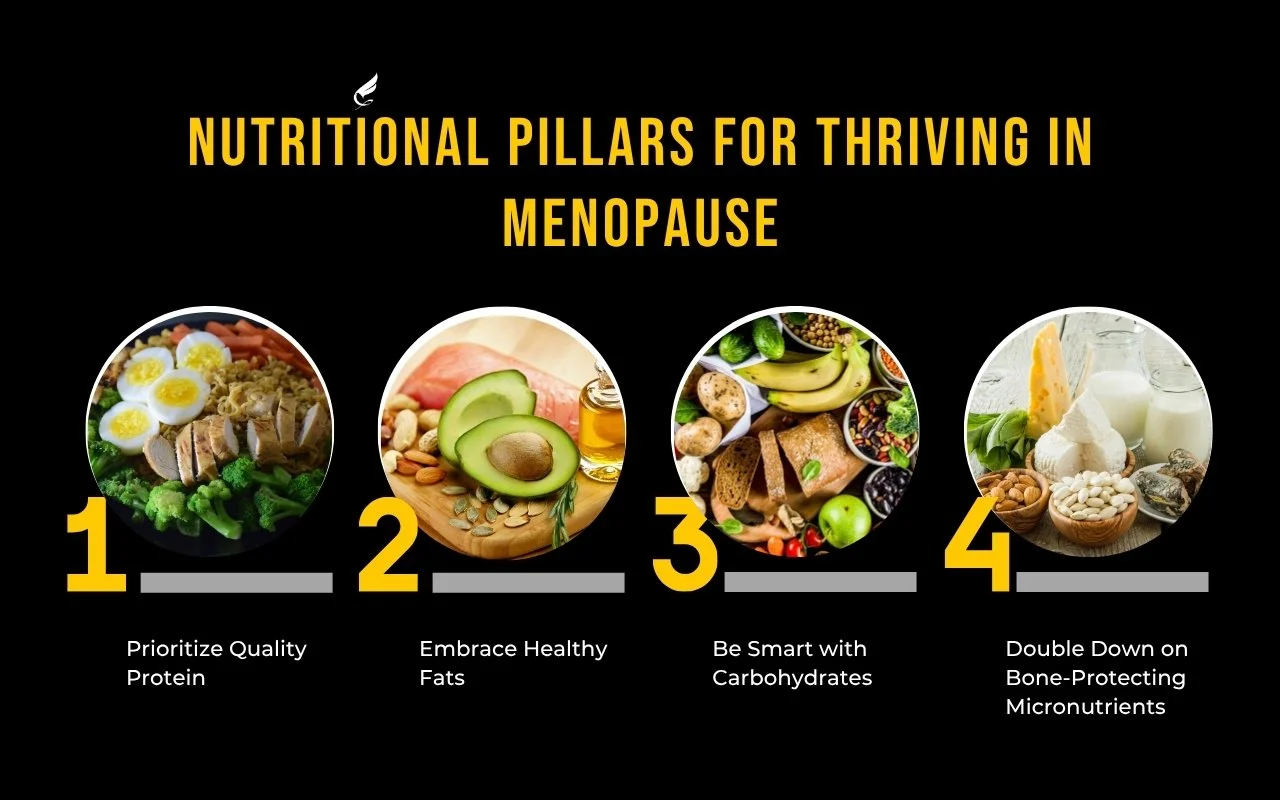The Ultimate Nutrition Guide for Women in Menopause
The menopausal transition is a significant phase in a woman's life, often accompanied by a host of frustrating and confusing changes. Stubborn weight gain around the midsection, disruptive hot flashes, sleep disturbances, and persistent mood swings can make you feel like you're no longer in control of your own body.
Many women are told this is just something they have to endure. At Fortius, we disagree.
While the decline in estrogen levels is a real biological shift, your nutrition is one of the most powerful tools you have to manage its effects. This is not about restrictive dieting; it's about making strategic dietary changes to work with your body. This guide will provide you with a clear, science-backed framework to not just survive, but thrive through menopause.
The Menopause Shift: Why Your Body is Changing
As you approach the average age of menopause, the drop in estrogen sets off a chain reaction that can:
Slow Your Metabolism: Making it easier to gain weight, even if you haven't changed your eating habits.
Increase Bone Loss: Raising the risk of osteoporosis. Protecting your bone health becomes non-negotiable.
Affect Heart Health: Changes in cholesterol levels and blood pressure can increase the risk of heart disease. A cardiovascular risk assessment during this time is often recommended.
Understanding this allows us to create a targeted nutritional strategy to counteract these changes and reduce menopause symptoms.
The Fortius Nutritional Pillars for Thriving in Menopause
Forget fad diets. Your focus should be on incorporating specific, nutrient-dense foods rich in what your body now needs most.
Pillar 1: Prioritize Quality Protein Protein is your single most important macronutrient during menopause.
Combats Muscle Loss: As estrogen declines, so does muscle mass. A diet high in quality protein helps preserve and build lean muscle, which is crucial for a healthy metabolism.
Manages Weight: Lean protein foods are highly satiating, helping you feel fuller for longer, which is key to preventing the common weight gain associated with this life stage.
Supports Bone Health: Your bones are made of a protein matrix. Adequate protein intake is essential to protect bone health.
What to Eat: Aim to include sources like grilled chicken, fatty fish (like salmon), eggs, Greek yogurt, and plant-based foods like lentils and chickpeas in every meal.
Pillar 2: Embrace Healthy Fats Dietary fat is not the enemy. The right kinds of fats are essential for optimal health.
Reduces Cardiovascular Risk: Unsaturated fats, found in olive oil, avocados, nuts, seed oils, and chia seeds, are crucial for maintaining healthy cholesterol levels and supporting overall heart health.
Manages Inflammation: Omega-3 fatty acids, abundant in fatty fish, can help combat the low-grade inflammation associated with menopausal symptoms.
What to Limit: Reduce your intake of saturated fats (found in processed meats and full-fat dairy) and avoid trans fats entirely.
Pillar 3: Be Smart with Carbohydrates Your body's ability to handle carbohydrates can change. The key is quality over quantity.
Focus on Fiber: Whole grains like brown rice, quinoa, and whole wheat bread are packed with fiber. Fiber helps manage blood pressure, supports gut health, and promotes stable energy levels.
Fuel Your Body: Your body still needs carbs for energy, especially if you're incorporating regular exercise.
What to Avoid: Minimize added sugars and refined carbohydrates found in white bread, pastries, and sugary drinks, as they can exacerbate symptoms and contribute to weight gain.
Pillar 4: Double Down on Bone-Protecting Micronutrients To combat the increased risk of osteoporosis, two micronutrients are vital.
Calcium: This is the primary building block of your bones. Aim for at least 1,200 mg per day from calcium-rich foods.
What to Eat: Dairy products like yogurt and milk, leafy greens (kale, broccoli), and fortified foods.
Vitamin D: You need Vitamin D to absorb calcium effectively. Many women in Dubai are deficient in this crucial vitamin.
How to Get It: Sensible sun exposure is the best source. It's also found in fatty fish and fortified foods. Supplementation is often necessary; consult your doctor.
Lifestyle Synergy: Amplifying Your Results
Nutrition is the foundation, but a holistic approach yields the best results.
Incorporate Physical Activity: A combination of weight-bearing activity (like strength training) and a brisk walk is the most effective way to protect against bone loss and manage weight.
Improve Sleep Quality: Night sweats and hot flushes can lead to sleep disturbances. Create a relaxing bedtime routine and ensure your bedroom is cool and dark. Better sleep quality has a direct positive impact on hormone levels.
Conclusion: You Are in Control
While you can't stop the menopausal transition, you can absolutely influence how you experience it. A strategic approach to healthy eating can significantly reduce severe symptoms, protect your long-term health, and empower you to feel strong, lean, and energetic.
This guide provides the nutritional knowledge, but applying it consistently is key. For a deeper understanding of how to integrate this with your training, we recommend reading The Fortius Method for Women: How to Train and Eat for Your Hormonal Cycle.
If you're ready to move beyond generic advice and get a plan that is built specifically for your body and your goals, we are here to help.
Book a free, no-obligation consultation with a Fortius expert today.







